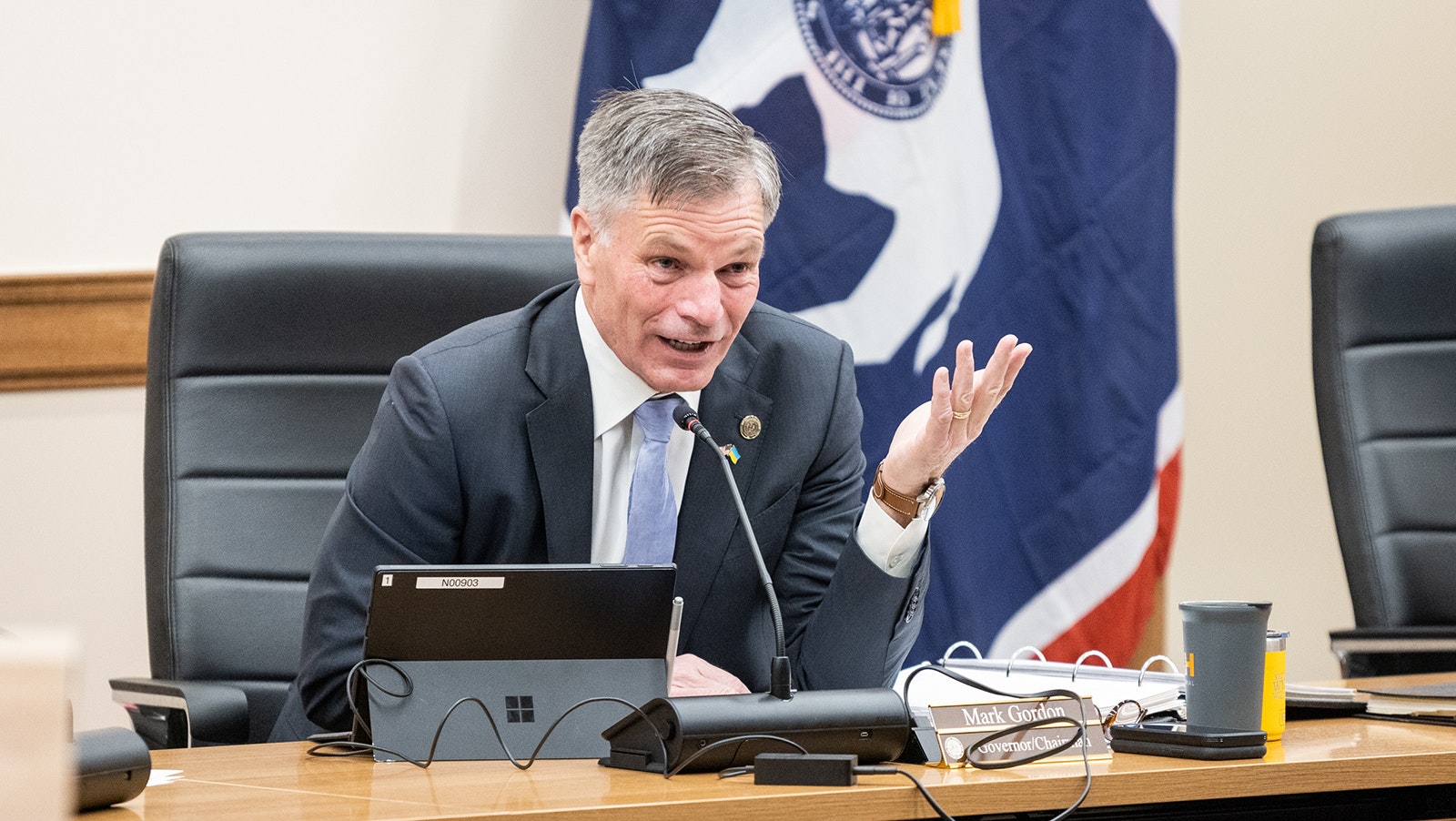Wyoming’s Stable Token Committee named three new members for its commission, including a prominent figure from Circle, a well-known peer-to-peer payment system that manages the USDC stable coin.
It also heard from members of the banking community, some of whom are unhappy with the direction the Wyoming stable token is going.
But if Wyoming wants to lead the way for digital currencies, it needs to continue to evolve its push to be the first U.S. state with its own stable token, said Gov. Mark Gordon.
He also said Wyoming and the United States are in a digital currency arms race with China they can’t afford to lose.
Flavia Naves, who is the general counsel for Circle, told commissioners she’ll leave her seat with Circle at the end of the month, and that she’s “keenly” interested in helping support Wyoming’s stable token.
“I’m keenly aware of the challenges that industry participants, especially fiat-backed stable coin issuers, face in entering the market,” Naves said. “Not only from a legal perspective, but also from an operational perspective.”
Her knowledge includes “all facets” of running this type of application in the business world, she said, from managing reserves to best positioning for stable tokens.
“I will be happy to contribute my knowledge to this commission and hope to see this token come to fruition and be successful,” she said.
The other two figures joining the commission are David Pope, an accountant and Wyoming CPA since 1996 who was also co-founder of the Wyoming Blockchain Coalition in 2017, and Jeff Wallace with Wyoming Bank and Trust, who said he’s had a longstanding interest in cryptocurrencies.
That still leaves one spot on the commission for a subject matter expert.
Banks Aren’t Happy
Scott Meier, president and CEO of the Wyoming Banker’s Association, told Gov. Gordon he was pleased to see Wallace on the commission, but that, as he sees it, Wyoming seems like it’s setting up to provide services banks already do in the private sector.
“Really, as we look at this stuff and listen to what’s going on here, you folks are delving into our world. This finance world, that’s what we do,” he said. “So, we want to be involved in the conversation. We want to be involved in the discussion. We want to know what’s going on.”
The whole point-of-sale discussion and ideas for using Wyoming’s stable token at the retail level also stray into banking territory, Meier suggested.
That idea has been advanced during public hearings several times by American CryptoFed DAO as a best use for the token. American CryptoFed DAO wants to create a frictionless payment system that will bypass hefty credit card fees, according to information on its website.
American CryptoFed DAO officials have suggested Wyoming’s stable token could help enable that, and, if successful, could mean a multibillion payday for the Cowboy State.
But Meier suggested that’s not something that’s likely to help consumers. In the past, he said, what happened with systems making such claims was that the merchants and processors just kept profits for themselves.
“It didn’t benefit the consumers,” Meiers said.
T-Bills Aren’t Risk Free
Meier also questioned the use of treasury bills as a backstop for Wyoming’s stable token, suggesting that the risks inherent to those were recently and dramatically illustrated by the failures of Silvergate, Signature Bank and First Republic.
All of those banks were heavily invested in T-bills for their backstop, but rapidly rising interest rates devalued them. Those banks were also holding more than the 250,000 that the FDIC insures, making them vulnerable to a run that they could no longer cover, since their treasuries were no longer worth as much.
The current federal regulatory climate is not likely to be friendly to a Wyoming stable token either, Meier added.
“I’m pretty sure you heard a couple of days ago that the SEC came down, you know, on Binance, today it was Coinbase,” he said. “When you look at that, it would appear to me that the federal regulators are starting to say, ‘No more of this monkey business in this world.’ So, I don’t know how you’re going to deal with that.”
Meier doubts the stable token will have any benefit to banks and believes it will just set up a new competitor that is state-backed.
“Last week, we read the commission say that Wyoming stable token would not be the state’s own currency, just a representation of the U.S. dollar held in trust by the state of Wyoming and invested in short-term treasuries,” Meier said. “That’s banking! That’s what we do! So, what is it that you guys are doing that I can’t do?”
Meier urged the Wyoming Stable Token Commission to make a business plan a top priority so that these kinds of issues would become clearer.
The China Connection
In response to Meier, Gordon suggested the picture for the Wyoming stable token has a much bigger lense.
“Harvard and MIT held a gathering a year and a half ago and out of that they said, ‘Look, if the Federal Reserve cannot figure out how to issue some sort of digital asset, they will lose out to China,’” Gordon said. “We are in a global arms race on that front.”
Gordon added that Meier had raised some good points, and he does not intend to make things more difficult for Wyoming’s state-chartered banks.
“If we don’t look at other forms of settlement we will be in trouble,” he said. “And I move to suggest to you that there are plenty of forms of settlement other than just cash transactions. And so, from my standpoint, I don’t see this, I hope, as any kind of direct competition.”
Gordon suggested the regulatory climate for smaller banks now is putting them at a steep disadvantage to larger banks, which is something he’d like to see eased.
“I want to figure out a way we can lift that sector,” he said.
The Wyoming Stable Token Commission meets again June 28 to continue its discussion. Among the topics for next time will be a job description for a director and/or consultant to help direct the process forward.
Renée Jean can be reached at renee@cowboystatedaily.com.





